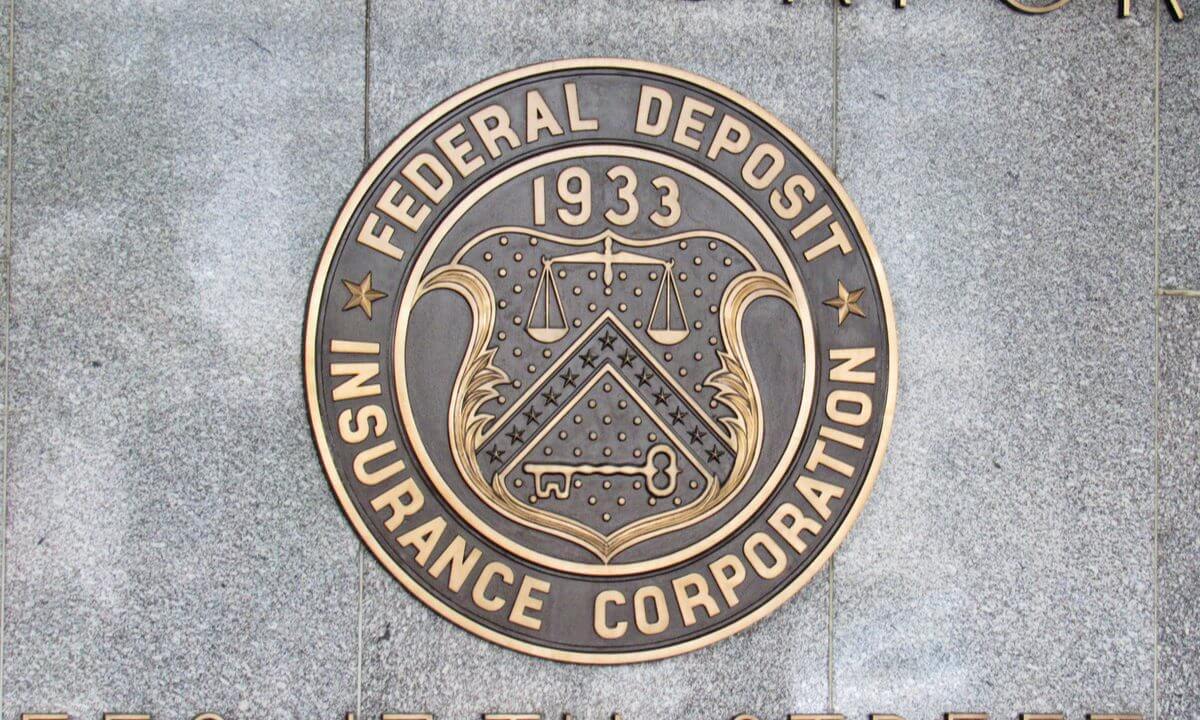FDIC Shifts Crypto Policy Under Trump Administration, Easing Bank Restrictions
29.03.2025 10:00 2 min. read
The Federal Deposit Insurance Corporation (FDIC) has announced a shift in its stance on digital assets under the Trump administration.
In a statement issued on Friday, the agency revealed it would revoke previous guidance that required financial institutions to notify the FDIC before engaging in cryptocurrency-related activities. This move marks a departure from the past, as the FDIC plans to issue new guidelines clarifying that its regulated entities can participate in certain crypto activities without needing prior approval.
FDIC Acting Chair Travis Hill expressed that this change signals the end of the agency’s previous, flawed approach to digital assets. He noted that this would be one of several steps the FDIC intends to take to establish clearer, more flexible guidelines for banks engaging with crypto and blockchain technologies while ensuring safety and soundness standards are maintained.
In the past, the FDIC had expressed concerns about the potential risks that cryptocurrency activities posed to the U.S. banking system, leading them to require financial institutions to inform the agency of any crypto-related ventures.
Additionally, the FDIC has taken steps to eliminate the “reputational risk” argument, which some in the crypto industry criticized for restricting access to essential banking services. This action comes on the heels of another move by the Office of the Comptroller of the Currency (OCC), which recently removed prior restrictions on crypto activities within the federal banking system.
These regulatory shifts come after President Trump has expressed a more crypto-friendly stance compared to the Biden administration. At a White House Summit on March 7, Trump criticized the previous administration’s handling of crypto, accusing them of pressuring banks to block crypto businesses and entrepreneurs from accessing essential financial services. Bo Hines, the executive director of the President’s Council of Advisers for Digital Assets, praised the FDIC’s recent actions, calling it “another big win” for the industry.
-
1
Japan Plans Major Crypto Reform with New Tax Rules and ETF Access
24.06.2025 20:00 2 min. read -
2
Gemini Launches Tokenized MicroStrategy Stock for EU Users
28.06.2025 9:30 2 min. read -
3
Here is When the U.S. House Will Vote on Key Crypto Bills
04.07.2025 12:00 2 min. read -
4
U.S. Crypto Investors Hit by IRS Letter Surge as Tax Crackdown Looms
29.06.2025 11:00 3 min. read -
5
Ripple Drops Cross-Appeal, Moves to End SEC Case “Once and for All”
28.06.2025 12:30 2 min. read
Senate Confirms Crypto-Linked Nominee Jonathan Gould to Head OCC
The U.S. Senate has confirmed Jonathan Gould as the next head of the Office of the Comptroller of the Currency (OCC), moving his nomination to President Donald Trump for final approval.
Australia Tests CBDCs in 24 Separate Real-World Finance Use Cases
Australia is stepping up its digital currency efforts with the next phase of Project Acacia, a pilot focused on testing central bank digital currency (CBDC) and tokenized finance in real-world applications.
U.S. Treasury Eliminates Crypto Reporting Rule Targeting Decentralized Exchanges
According to Bloomberg the U.S. Treasury Department has officially eliminated a controversial crypto reporting requirement that targeted decentralized exchanges.
U.S. Lawmakers Target El Salvador With Crypto Sanctions Plan
Three Democratic senators—Chris Van Hollen, Tim Kaine, and Alex Padilla—unveiled a bill aiming to penalize El Salvador’s President Nayib Bukele and his allies.
-
1
Japan Plans Major Crypto Reform with New Tax Rules and ETF Access
24.06.2025 20:00 2 min. read -
2
Gemini Launches Tokenized MicroStrategy Stock for EU Users
28.06.2025 9:30 2 min. read -
3
Here is When the U.S. House Will Vote on Key Crypto Bills
04.07.2025 12:00 2 min. read -
4
U.S. Crypto Investors Hit by IRS Letter Surge as Tax Crackdown Looms
29.06.2025 11:00 3 min. read -
5
Ripple Drops Cross-Appeal, Moves to End SEC Case “Once and for All”
28.06.2025 12:30 2 min. read


